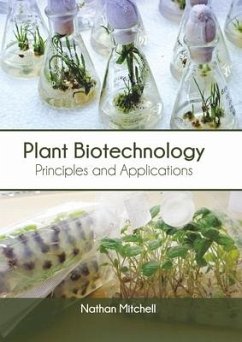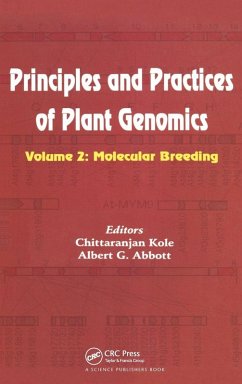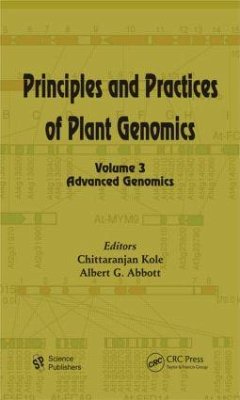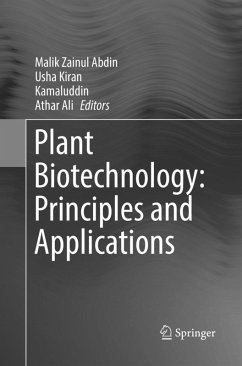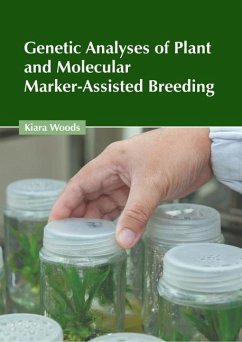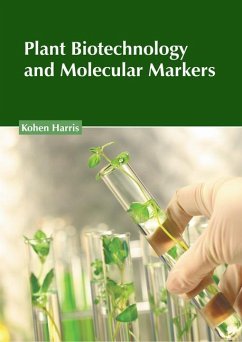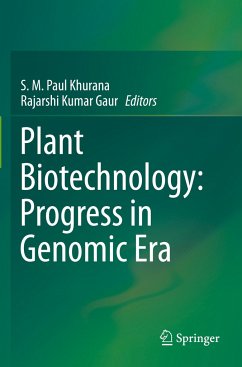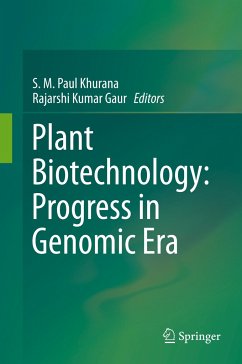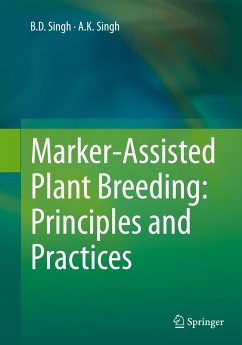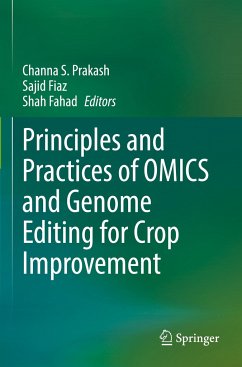
Plant Biotechnology: Principles and Practices
Versandkostenfrei!
Versandfertig in über 4 Wochen
154,99 €
inkl. MwSt.

PAYBACK Punkte
77 °P sammeln!
Plant biotechnology involves the application of life science principles and techniques to develop enhanced plant varieties. Among the most common methods employed are hybridization (cross-pollination) and mutation breeding. Modern plant biotechnology can be broadly categorized into two main areas: plant tissue culture and recombinant DNA technology. In plant tissue culture, a segment of plant tissue, referred to as an explant, is cultured in a sterile medium to encourage growth. Recombinant DNA technology, on the other hand, involves the splicing or recombining of DNA from two different specie...
Plant biotechnology involves the application of life science principles and techniques to develop enhanced plant varieties. Among the most common methods employed are hybridization (cross-pollination) and mutation breeding. Modern plant biotechnology can be broadly categorized into two main areas: plant tissue culture and recombinant DNA technology. In plant tissue culture, a segment of plant tissue, referred to as an explant, is cultured in a sterile medium to encourage growth. Recombinant DNA technology, on the other hand, involves the splicing or recombining of DNA from two different species. Additional techniques explored in this field include micropropagation, which is the rapid production of plant clones, and genetic engineering. This book elucidates the concepts and innovative models around prospective developments with respect to plant biotechnology. It explores all the important aspects of this field in the present day scenario. In this book, constant effort has been made to make the understanding of the difficult concepts of plant biotechnology as easy and informative as possible, for the readers.



